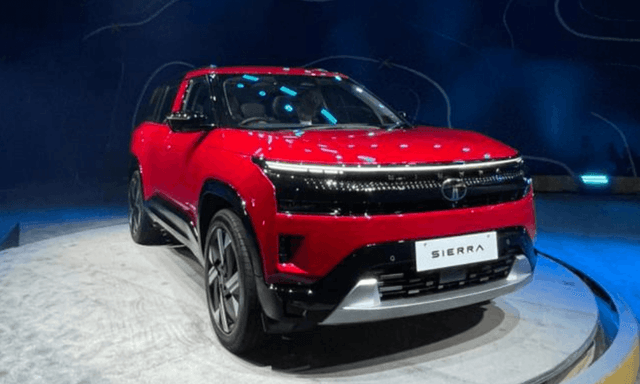How Ford Is Approaching Safety With Its Self Driving Platform

- Ford is taking a holistic approach to self driving cars
- It is working alongside cities, partners and even thinking about COVID
- Argo AI has developed new LiDARs which are used in the Ford Escape
Ford has announced some updates for its self-driving business giving a glimpse into how far along its service has come and how safety is a priority for the Detroit-based automotive major. As a part of the self-assessment report, Ford has revealed how it works in tandem with a multitude of cities and Argo AI, a self-driving company it has invested in. This report has been shared with the US Department of transport as well.
Ford reveals that it is planning on launching its self-driving service in many cities - Miami, Washington DC, Austin in Texas. In these cities, it has established robust testing practices and business operations that will allow it to manage its fleet. It is also expanding its pilot project with Argo AI testing its self-driving platform in more diverse driving conditions like Detroit, Pittsburgh, Palo Alto in California. It claims that its self-driving programme is the most diverse and perhaps could be the largest of any self-driving platform in urban conditions.
It has developed its newest self-driving test vehicle called the Escape. Escape is an EV and has the latest in sensor and computing technology Ford claims in a blog post. "The Escape - with a modified exterior and interior designed to deliver a great customer experience - is also the type of vehicle we will initially launch our service with," said Ford in a blog post.

Both Ford and Volkswagen have jointly invested in Argo AI
Ford is working closely with cities and customising its service for the unique needs of every city. It cites the example of Miami where it has worked extensively with the city.
"An example of our collaboration is our Ford-designed smart infrastructure in Miami. We worked closely at the city, county and state level to begin researching complex intersections. While our self-driving vehicles will be fully capable of safely navigating the streets on their own, we are looking at how we can provide self-driving vehicles with even more information before they approach busy or tricky intersections, giving them additional context about the activity ahead," said Ford's John Davis, its director for autonomous vehicles and future technology.
COVID19 has touched everything and the self droving business has also been impacted. Ford is looking into making things safer and sanitised and making sure the right processes are in place for its customers.
Its investment in Argo AI is a big part of the self-driving future. Recently, Argo announced its LiDAR sensor which will have a range of 400 meters which is higher than what LiDAR makers like Luminar are offering. Argo AI is working closely with Ford's engineering team and now Ford's self-driving cars have redundancies in place and are designed to be fail-functional.
"For instance, if there is a loss of operation in one system, the automated driving system can still bring the vehicle to a controlled stop using the redundant control or power system. These capabilities are not normally included in regular production vehicles sold to consumers," explained John Davis.
Trending News
Latest News
 car&bike Team | Dec 14, 2025Top-Spec Tata Sierra Accomplished, Accomplished+ Prices RevealedRegardless of the powertrain combination chosen, all Tata Sierra Accomplished+ trims cost upwards of Rs 20 lakh (ex-showroom).2 mins read
car&bike Team | Dec 14, 2025Top-Spec Tata Sierra Accomplished, Accomplished+ Prices RevealedRegardless of the powertrain combination chosen, all Tata Sierra Accomplished+ trims cost upwards of Rs 20 lakh (ex-showroom).2 mins read car&bike Team | Dec 13, 2025Skoda Slavia Facelift Spied Testing Again Ahead Of DebutThe facelifted Slavia is expected to debut in 2026 as Skoda-VW India looks to refresh its India 2.0 range.1 min read
car&bike Team | Dec 13, 2025Skoda Slavia Facelift Spied Testing Again Ahead Of DebutThe facelifted Slavia is expected to debut in 2026 as Skoda-VW India looks to refresh its India 2.0 range.1 min read car&bike Team | Dec 13, 20252026 MG Hector Facelift Interior Previewed Ahead Of DebutLatest teaser video of the upcoming Hector facelift suggests minimal cosmetic changes to the interior as well as reveals a new alloy-wheel design.1 min read
car&bike Team | Dec 13, 20252026 MG Hector Facelift Interior Previewed Ahead Of DebutLatest teaser video of the upcoming Hector facelift suggests minimal cosmetic changes to the interior as well as reveals a new alloy-wheel design.1 min read Jaiveer Mehra | Dec 13, 2025Passenger Vehicle, Two-Wheeler Sales Surge In November 2025: SIAMBoth segments reported a growth in the region of 20 per cent, though year-to-date sales growth in FY2026 was notably flatter at around 3 per cent.1 min read
Jaiveer Mehra | Dec 13, 2025Passenger Vehicle, Two-Wheeler Sales Surge In November 2025: SIAMBoth segments reported a growth in the region of 20 per cent, though year-to-date sales growth in FY2026 was notably flatter at around 3 per cent.1 min read car&bike Team | Dec 12, 2025Nissan Entry MPV Design To Be Unveiled On December 18New MPV to be the first of three new models for India by Nissan, alongside the Tekton and a three-row SUV.1 min read
car&bike Team | Dec 12, 2025Nissan Entry MPV Design To Be Unveiled On December 18New MPV to be the first of three new models for India by Nissan, alongside the Tekton and a three-row SUV.1 min read Jaiveer Mehra | Dec 12, 2025New Mini Convertible Launched At Rs 58.50 LakhDrop-top variant of the iconic Cooper hatchback available in a single Cooper S spec.1 min read
Jaiveer Mehra | Dec 12, 2025New Mini Convertible Launched At Rs 58.50 LakhDrop-top variant of the iconic Cooper hatchback available in a single Cooper S spec.1 min read
 Janak Sorap | Dec 11, 2025Harley-Davidson X440 T First Ride Review: Smarter and SharperHarley-Davidson has taken the X440 and given it a more focused and engaging twist. The result is the X440 T—essentially the same platform but updated in areas that give the motorcycle more appeal and riders more thrill.5 mins read
Janak Sorap | Dec 11, 2025Harley-Davidson X440 T First Ride Review: Smarter and SharperHarley-Davidson has taken the X440 and given it a more focused and engaging twist. The result is the X440 T—essentially the same platform but updated in areas that give the motorcycle more appeal and riders more thrill.5 mins read Shams Raza Naqvi | Dec 10, 20252025 Mini Cooper Convertible Review: More Colour On Indian RoadsThe updated Mini Cooper Convertible is set to be launched in the Indian market in the next few days. We drive it around Jaisalmer for a quick review.1 min read
Shams Raza Naqvi | Dec 10, 20252025 Mini Cooper Convertible Review: More Colour On Indian RoadsThe updated Mini Cooper Convertible is set to be launched in the Indian market in the next few days. We drive it around Jaisalmer for a quick review.1 min read Bilal Firfiray | Dec 8, 2025Tata Sierra Review: India’s New Favourite?Marking its return after a few decades, the reborn Sierra has made everyone sit up and take notice. But is it worth the hype?10 mins read
Bilal Firfiray | Dec 8, 2025Tata Sierra Review: India’s New Favourite?Marking its return after a few decades, the reborn Sierra has made everyone sit up and take notice. But is it worth the hype?10 mins read Girish Karkera | Dec 4, 20252026 Honda Prelude First Drive: Domesticated Civic Type RA sporty-looking coupe built to give customers a taste of performance but not at the expense of everyday practicality.5 mins read
Girish Karkera | Dec 4, 20252026 Honda Prelude First Drive: Domesticated Civic Type RA sporty-looking coupe built to give customers a taste of performance but not at the expense of everyday practicality.5 mins read Seshan Vijayraghvan | Nov 29, 2025Mahindra XEV 9S First Drive Review: Big Electric SUV, Bigger ExpectationsThe XEV 9S lands at a time when the EV crowd is growing fast. It’s a big, born-electric, three-row SUV that starts under 20 lakh. It sits close to the XUV700 in size, but the brief is very different. Here’s what it’s like on the road.11 mins read
Seshan Vijayraghvan | Nov 29, 2025Mahindra XEV 9S First Drive Review: Big Electric SUV, Bigger ExpectationsThe XEV 9S lands at a time when the EV crowd is growing fast. It’s a big, born-electric, three-row SUV that starts under 20 lakh. It sits close to the XUV700 in size, but the brief is very different. Here’s what it’s like on the road.11 mins read

































































































































